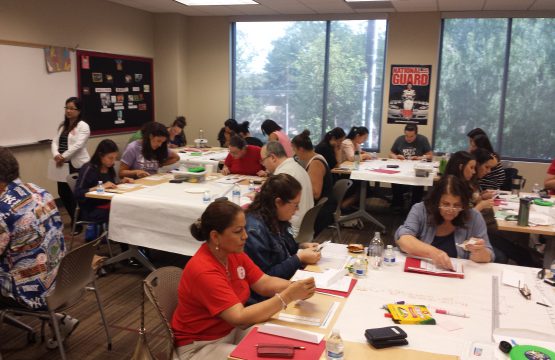The role of a mentor for the first-generation college student
Our scholars — just because they are scholars — sometimes create an extra bit of conflict with the closest people in their lives: their parents and other family members. Having experienced 40-plus years of occasional strains in family relationships because I’m a first-in-the-family college graduate and card-carrying egghead, I’m always concerned about how scholars are getting along with their families and friends.
What’s the big deal? The extraordinarily bright and driven Earl Woods Scholars are attending colleges where free and open intellectual inquiry is the norm. In these rarified and exotic environments, students take courses in philosophy, logic, critical thinking and debate. Other rigorous courses in composition, mathematics and the sciences also demand mastery of sound, fact-based, data-driven reasoning abilities.
It doesn’t take too long for the students to become aware that some things they’ve been taught at home and in their communities are not based on sound reasoning. Oh, heck! Let’s be honest. A lot of things they’ve been taught are not based on sound reasoning!
Now, let’s take a look at it from the parents’ perspective. They want the best for their child. However, their definitions of “best” vary because of their life experiences and socio-economic situations. Also, it is fair to say that most of the scholars’ parents do not have the advantage of higher education. As a result, the parents often rely on guesses, hunches, whims, habits, customs, traditions, dogma, rituals and beliefs to make every day and major, sometimes life-changing, decisions.
We need to be really clear on this point: These aren’t shortcomings for the parents! They are time-tested values and virtues.
Complicating the situation is that people in general tend to fear what they don’t understand. When education attainment levels are low, parents can have difficulty making sense of events and social trends. As a result, they can fear an awful lot of things.
Is it any surprise then that the newly enlightened scholars frequently ignite conflict with their parents — and by extension, everyone else in the family? All it takes are a few ill-considered — or as my parents would have said, “smart-mouthed” — comments like these by a young person and World War III explodes:
- Are you kidding me?
- So what?
- Who says? Where did you get your information?
- That isn’t logical!
- Do you realize how silly your idea is?
The emotional responses on both sides come to a boil quickly with:
- The scholar’s thinking there had to have been a mix-up in the hospital’s newborn unit 18+ years ago, and
- The parent’s thinking those subversive college professors have brainwashed their baby and set them on a path to social, cultural, political and/or religious perdition.
Where do mentors fit into all this? Most of all we must stay completely out of the conflict. It’s not our job to take sides or, worse yet, become the reason for such conflicts. What we can and should do is help our scholars understand that such conflicts are:
- Probably going to happen
- They can and do happen at the most inconvenient times, and
- As the most educated person in the room, it is the scholar’s responsibility to:
- Truly understand the root causes of the argument
- Manage the conflict to an amicable conclusion where there is no loss of face and its attendant hard feelings.
It’s on this last point where mentors can help by providing the following:
- Proven interpersonal conflict-resolution methods
- Examples of our own conflict resolution successes and failures, and
- Encouragement to help the scholars prevent or at least better manage conflicts.
It can be tough on the scholars’ parents to see their kids blossom into independent young professionals. It is also tough on scholars as they realize that although they love and respect their parents, they sometimes have to carefully and sensitively ignore them to make their own life-defining decisions.
So, again, where do mentors fit into this? We have to be there for our scholars to ease their way into adulthood with wise strategies, proven methods and strong emotional support.
William Borges is one of more than 100 dedicated mentors that volunteer their time in support of the Earl Woods Scholarship.
Champions of the unexpected for 20 years.


